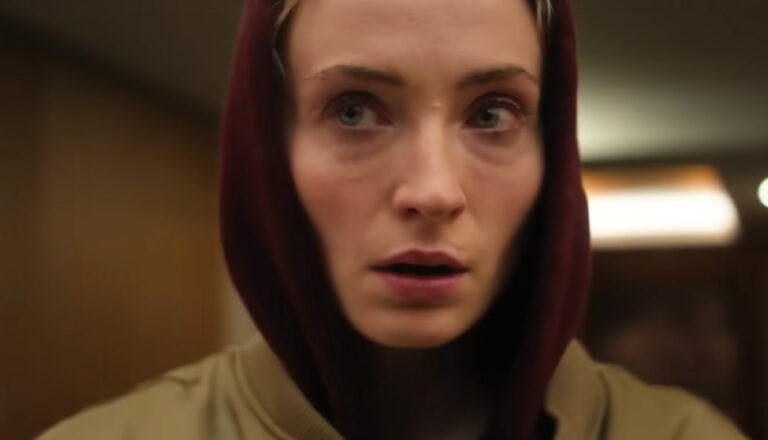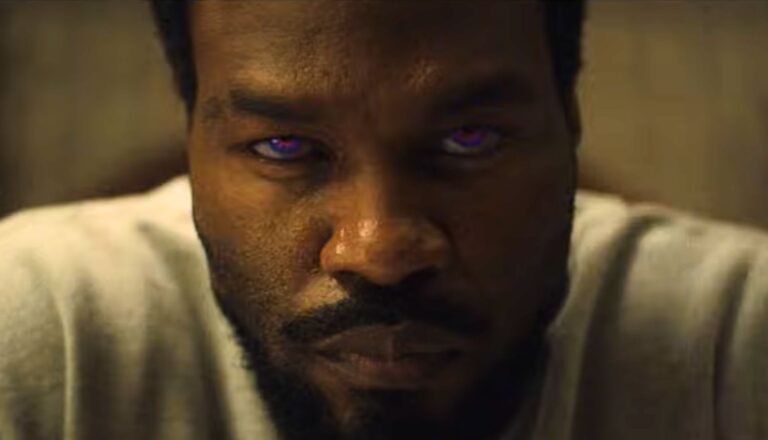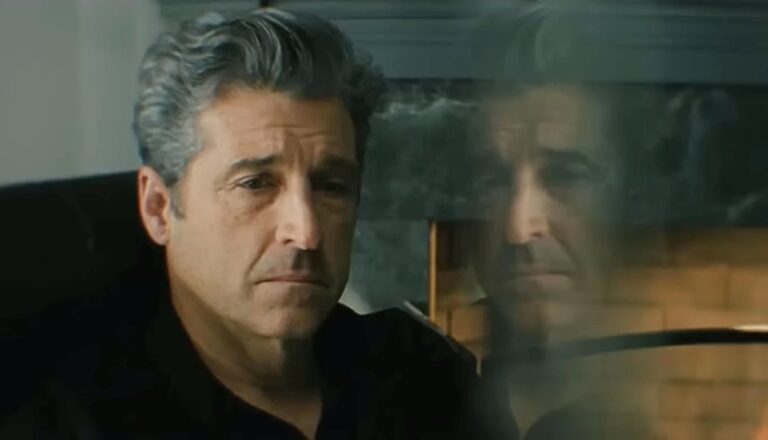
Shrinking
Apple TV+ seems to have a knack for creating deeply heartfelt, wildly problematic comedies. Shrinking is one of them.

The 1960s Baltimore department store is fresh out of yellow dresses. Maddie Schwartz is in a rush, so she asks if she can buy the last one off Cleo Johnson, the Black woman modeling the dress in the shop window.
It won’t be the last time Maddie sees Cleo as a means to an end.
When Maddie heard that the 11-year-old Tessie Durst had gone missing, she became obsessed with the hunt to find her, even divorcing her husband (who forbid her to help) to join in the search. And it’s not long before Maddie finds the girl’s frozen body washed up on the shore of a nearby lake.
Maddie is flooded with praise for finding the girl. And, on her own and looking to make some money, Maddie uses that praise to get her dream job as an amateur investigative reporter for the Baltimore Star. And it’s not long before another murder catches her eye: that of Cleo Johnson, the model from the department store—her body now decaying after being dumped in a lake.
Under happier circumstances, perhaps Maddie and Cleo would have bonded in their unique, yet often parallel struggles. Both women faced a world set against them and did all they could to make things work. Both tried earnestly to seek a better future for herself, her family and her city.
But Cleo’s story ended abruptly, and Maddie chose to pick it up.
Maddie imagines herself giving a voice to someone who can no longer speak for herself. But as Cleo watches from beyond the grave, she sees Maddie as a self-serving pawn, using Cleo’s and Tessie’s deaths for the sake of her own grandeur.
Apple TV+’s Lady in the Lake has a lot to say and not much time to say it.
The miniseries seeks to capture the unique struggles faced by two women fighting to get by in 1960s Baltimore: one, a freshly divorced Jewish woman who’s all too used to casual anti-Semitic remarks; the other, a Black mother and wife working three jobs in a city which cares little for her, forced to take on yet another job just to make ends meet. (One which gets her involved, against her will, in the dangerous proceedings of gangsters.) And unfortunately for the latter, Cleo, even death provides no relief, as the former, Maddie, exploits her story for personal gain.
Were the heavy tale told in a longer format than a miniseries, perhaps all the elements present in the show—namely, depictions of systemic discrimination—could have been explored with more depth and skill. Unfortunately, the series tries to cram too much detail into too few episodes. And much of what could have been a thoughtful exploration comes off as blatant and jarring.
And the content explored within Lady in the Lake is just as heavy as its tone, too. The series starts with the murders of two people—including a young girl. Sex and general nudity sully the show, as do frequent hate crimes and crude language.
Lady in the Lake tries to tell a compelling story, one which hopes to bring to the table deeper questions on ethics, oppression and integrity. Sadly, such issues only get obscured in the show’s cloudy waters.
(Editor’s Note: Plugged In is rarely able to watch every episode of a given series for review. As such, there’s always a chance that you might see a problem that we didn’t. If you notice content that you feel should be included in our review, send us an email at letters@pluggedin.com, or contact us via Facebook or Instagram, and be sure to let us know the episode number, title and season so that we can check it out.)
Maddie leaves her husband to assist in the search for the missing Tessie Durst. Meanwhile, Cleo begins to recount the events which led to her demise.
Tessie wonders how Santa will know that her family is Jewish, and her mother tells her that he’ll see the mezuzah (a piece of parchment inscribed with Hebrew verses from the Torah) on their door. Tessie mentions God making fish on the fifth day of Creation. A Black-Jewish Alliance comments on the Nation of Islam’s “rhetoric of Black Power.” Someone references Shelo Asani, Jewish blessings wherein the speaker praises God for not making him a Gentile, slave or woman. Someone is described as “the Prophet.” Someone references Yom Kippur.
Tessie (alive at this point) is seen dirty and cut up. Later, we see her frozen corpse in a lake. A man throws a dead body into a lake. A woman cuts her hand on a broken dish. Boxers fight.
A man and woman are naked, though nothing is shown due to clever camera angles. The man wipes away blood from a couch after presumed sex. A woman removes her clothes, except her underwear. We hear a reference to sex. A teen girl describes a forested area as an “old make-out spot,” where she “roll[ed] naked in the grass with a couple boys.” A man and woman passionately kiss. A woman’s dress shows off her cleavage. Someone denies flirting with a married woman by stating that he doesn’t “pee on marked trees.” A boy jokes about what kind of women he finds attractive.
We see instances of casual racism. A man urinates in an alleyway. A man sells drugs, and a woman is visibly intoxicated. A man smokes a joint. People drink alcohol and smoke cigarettes.
The f-word is used eight times, once preceded by “mother.” “A–” and “d–n” are used a couple times. God’s name is used in vain three times, including one which is followed by “d–n.”

Kennedy Unthank studied journalism at the University of Missouri. He knew he wanted to write for a living when he won a contest for “best fantasy story” while in the 4th grade. What he didn’t know at the time, however, was that he was the only person to submit a story. Regardless, the seed was planted. Kennedy collects and plays board games in his free time, and he loves to talk about biblical apologetics. He’s also an avid cook. He thinks the ending of Lost “wasn’t that bad.”

Apple TV+ seems to have a knack for creating deeply heartfelt, wildly problematic comedies. Shrinking is one of them.

‘Steal,’ an intense, nail-biting thriller, will certainly keep you engaged. But that means facing some bloody, frightening situations along the way.

For a superhero show, ‘Wonder Man’ is surprisingly light on violence, but a bit heavy on swearing, sexual allusions and meta-Hollywood references.

The content issues in ‘Memory of a Killer’ aren’t forgettable, but they’re tamer than most other shows in the “double life” genre.